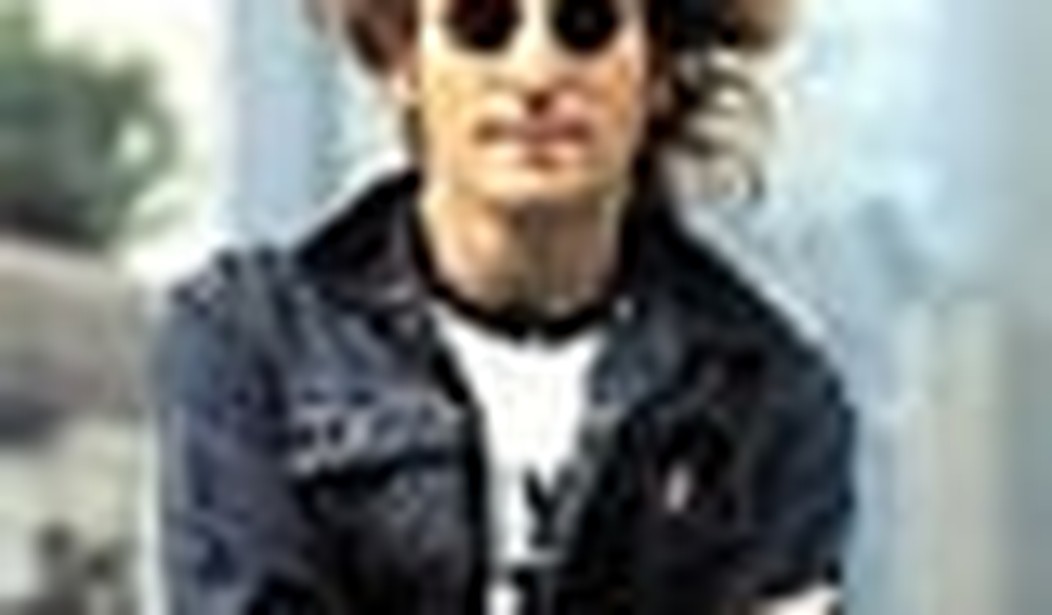(John Lennon) criticized America’s involvement in Vietnam, and, as the Sixties progressed, he became an increasingly important symbol of the burgeoning counterculture.
— Veteran rock music journalist Anthony DeCurtis, on the website JohnLennon.com, 10/8/10.
As a staunch Lennonist, I was tickled to get a letter some years back from a rich lefty friend that included a photo of him sitting with “John” in Havana. Well, he wasn’t really with John himself, since the ex-Beatle was long dead at that point. But he was sitting next to the famous “Imagine” statue of John on a park bench in the Cuban capital. My friend had a wicked grin on his face — he knew I’d hate to see evidence that he was fraternizing in some sense with the old red butcher Castro.
As I considered the picture, I thought: “Cute, but guess what would happen to any Cuban caught singing the lyrics to Lennon’s best song?” We might all differ as to what was his best song, but to me it was “Revolution 1,” usually just called “Revolution.”
When the Beatles’ “White Album” came out in late 1968, the world seemed almost literally to be coming apart at the seams. Against the backdrop of a big, increasingly unpopular war in Southeast Asia, riots, assassinations, and strikes had become commonplace and upheaval was the order of the day. The young, in particular, were on the march, trying to “kick out the jams” as the gritty Detroit band MC5 urged, and to end not only “the” war in Vietnam, but the very idea of war. Many of the young were in the thrall of a potent millennialism as well: In this “Age of Aquarius” there’d be not only no war, but no want, no racism … not even bad vibes. Nothing but bliss — whether of the drug-induced or self-induced variety, no one much cared. But how to achieve this exalted state of consciousness the young seemed to sense was really just around the corner?
For some, the answer was Lenin. The new age wouldn’t just birth itself, so there would have to be some rough stuff — knocking heads before you could cradle them, as the top Bolshevik himself had said — to bring its benefits to mankind.
But then a funny thing happened: Lenin met Lennon at the height of the world-shaking ructions of 1968, and Lennon won. On the first track of the fourth side of the white double album actually named “The Beatles,” he sang:
“You say you want a revolution … well, you know — we all want to save the world.”
John was basically sympathetic to those who sought to rock things — he was, after all, perhaps the quintessential rocker — but he wanted a little more information before signing off on the head-knocking program.
“You say you’ve got a real solution … well, you know — we’d all love to see the plan.”
If the revolutionaries wanted a contribution from him, which many of them undoubtedly did, John reminded them: “We’re all doing what we can.” But he knew that a gentle reproof wasn’t going to be enough, so rather than leave any doubt he put the hammer (and sickle) down:
“But if you want money for people with minds that hate. … All I can tell you is brother you have to wait.” Why? Because ultimately, “it’s gonna be all right.”
The potent words stopped the would-be bomb-throwers in their tracks. Not all of them, of course — late 1968 and the ensuing years would have more than their share of violence. But this song, coming as it did at the height of the Beatles’ almost unimaginable global popularity and influence, certainly exerted a calming influence on many of John’s young adherents — which is to say, a good part of the baby boom generation. If you were 17 then, as I was, and wondering which direction to take (a bright friend of mine in high school was planning to skip college in favor of training among the proles for “the revolution”), you suddenly had a sensible message from John Lennon, of all people, to go by: “Violence isn’t the way to bring about positive change. Don’t let yourself be swept into madness by people with little red books.”
Those words weren’t actually in the song, of course. And, in a typically Lennonesque twist, he also sang “and in” after “ but when you talk about destruction, don’t you know that you can count me out” in the first verse. But the rest of the song made the real message clear.
Everyone got it, except perhaps my lefty friend on his “Sandalista” pilgrimage to Havana. Did he ever stop to think about what might happen to any Cuban caught singing words like “But if you go carrying pictures of Chairman Mao, you ain’t gonna make it with anyone anyhow”? Probably not.
Nor did any of the Lennon retrospectives I saw this month in commemoration of what would have been his 70th birthday play or talk about the song that may well have kept some blood from flowing in the streets in 1968 and thereafter. Don’t worry, though. As John himself said: “Don’t you know it’s gonna be … all right.”









Join the conversation as a VIP Member